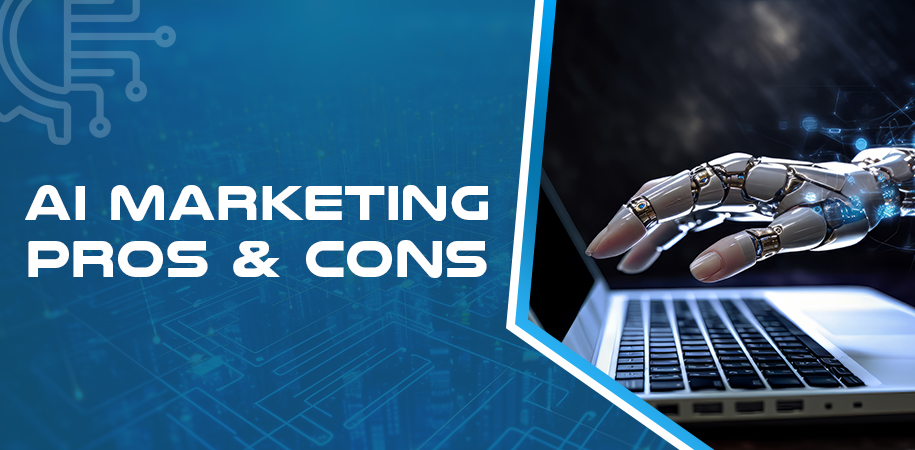While AI offers numerous benefits, it is still an emerging technology with certain drawbacks. Let’s explore the advantages and disadvantages of AI in digital marketing.
Pros of AI in Digital Marketing
Increased ROI
The primary goal of using AI in digital marketing is to boost campaign performance and ROI. AI enables real-time data analytics and insights, allowing marketers to produce better marketing assets and avoid running ineffective ads throughout a campaign.
This efficiency saves time and money, increasing profits and ROI by reducing staff time and production costs.
Speed and Efficiency
Time savings are a significant advantage of generative AI in marketing, with marketers reporting over three hours saved per piece of content produced with AI. This efficiency frees up time to focus on more strategic tasks and enhances the ability to launch campaigns quickly, giving brands a competitive edge.
Being first in a market, whether through rapid social media campaigns or swift digital campaign launches, is invaluable.
Better Customer Experience
AI can enhance customer relationships by providing personalized recommendations and deeper interactions, increasing the likelihood of repeat purchases. AI also identifies customers at risk of churn and automatically engages them in marketing campaigns to re-engage with your company.
Data-Based Marketing Decisions
AI facilitates business scaling by analyzing data to predict and create effective marketing assets. This data-driven approach helps marketers make informed decisions that drive sales and improve overall marketing strategies.
Contact with us to get AI Marketing Solution
Cons of AI in Digital Marketing
Content Quality and Accuracy
Generative AI has improved, but its content can still contain factual errors. About 47% of marketers report receiving inaccurate information from AI-generated content. With human editing, AI-generated content may be improved, with potential inaccuracies, bias, or tone deviations from the brand. Human oversight is essential to maintain content quality.
Privacy Concerns
As personalized marketing techniques evolve, customer privacy becomes increasingly important. AI often relies on cookies and past internet behavior to predict future purchases, necessitating compliance with privacy laws such as GDPR when using AI software.
Copyright Concerns
The legal framework for AI is still developing. Generative AI tools are trained on public content, which may lead to content generation that closely resembles competitors’ work. Copyright laws focus on human authorship, making it unclear if AI-generated content can be owned in the same way.
Evaluating Non-Quantifiable KPIs
Gaining buy-in for AI investment can be challenging due to non-quantifiable KPIs. While some metrics are easy to track, others, such as improving customer experience, brand awareness, or reputation, are more challenging to measure. Implementing the right measurement tools is crucial to evaluate these intangible benefits.
Conclusion
AI presents a range of benefits in digital marketing, including increased ROI, enhanced speed and efficiency, improved customer experience, and data-driven decision-making. However, it also comes with challenges such as content accuracy, privacy concerns, copyright issues, and evaluating non-quantifiable KPIs. As AI technology continues to evolve, marketers must balance these pros and cons to integrate AI into their strategies effectively.



